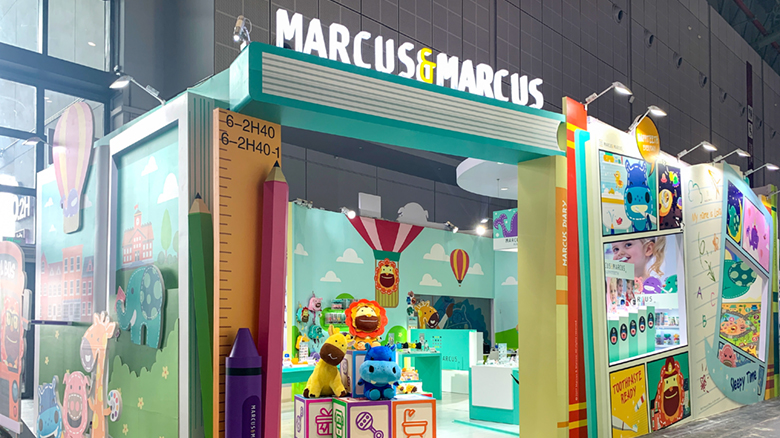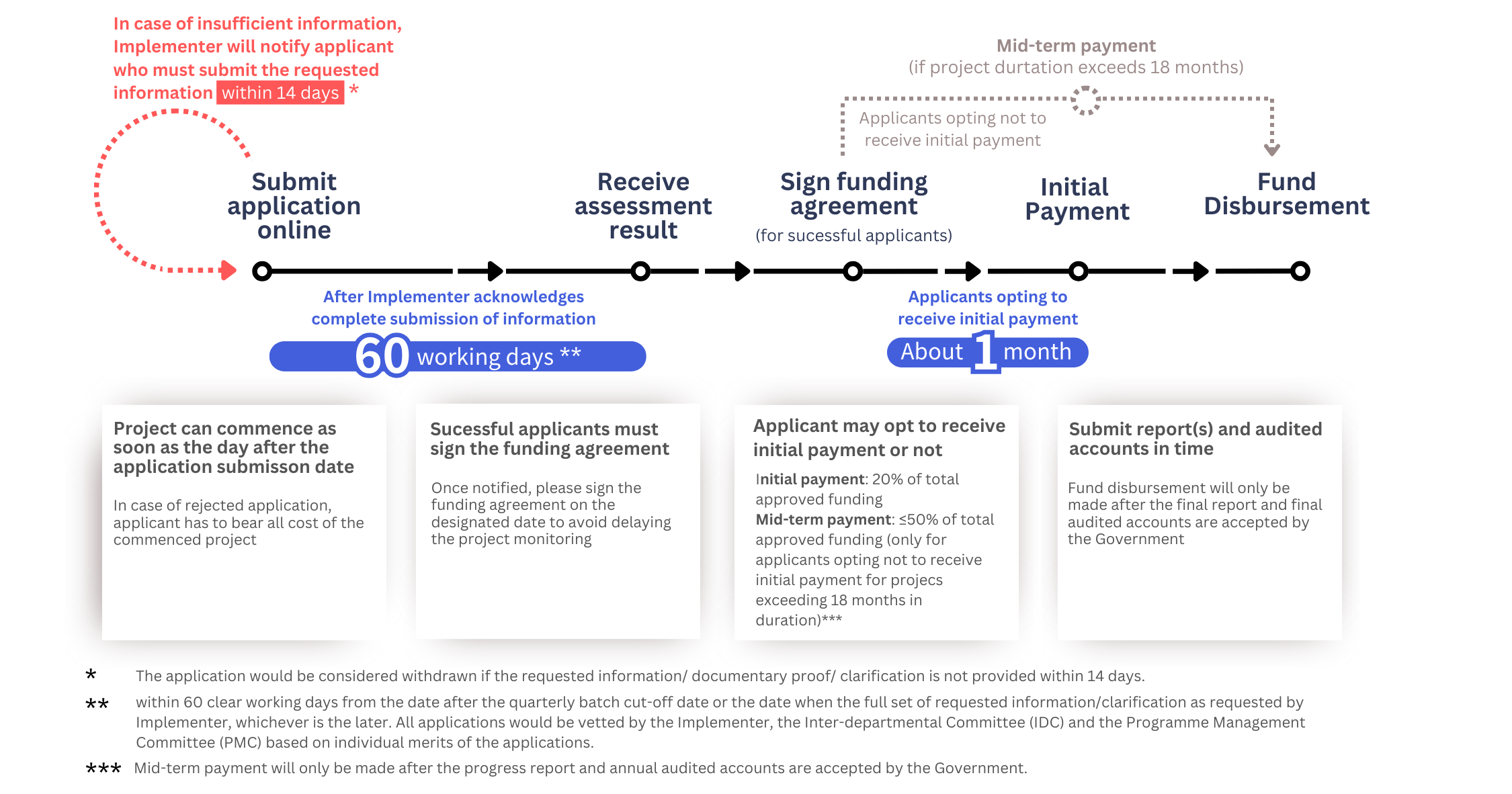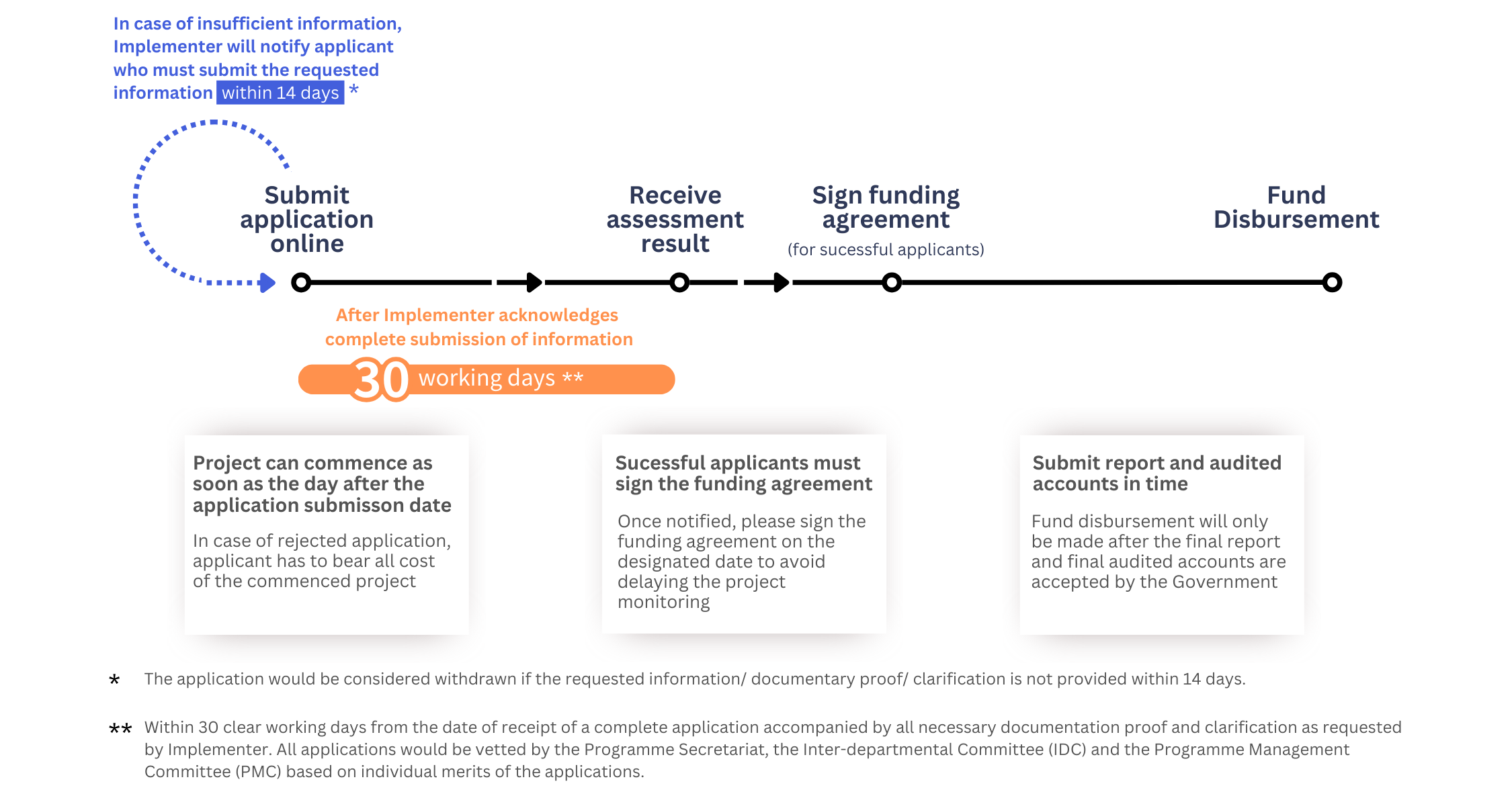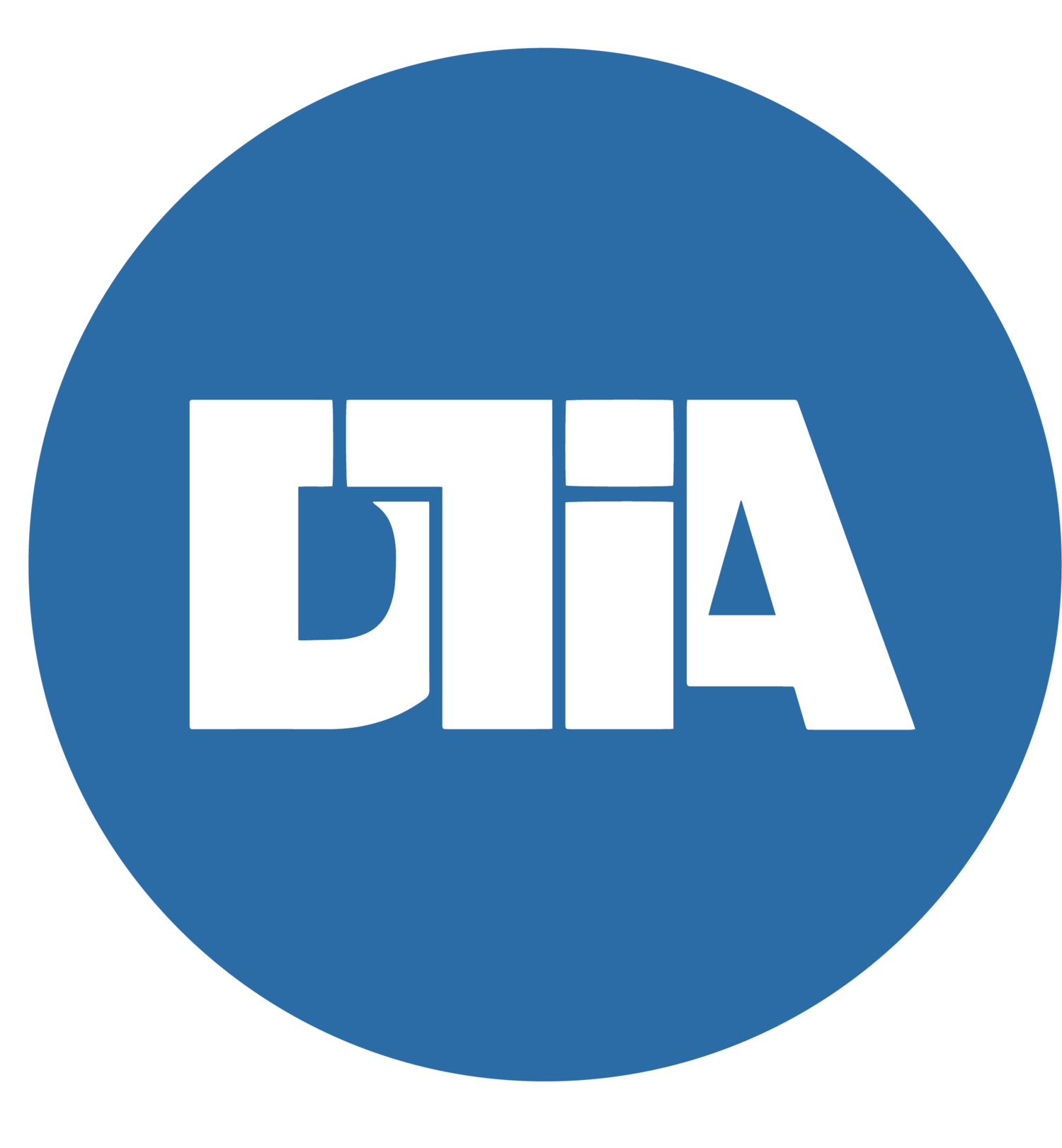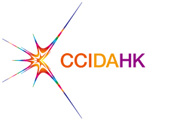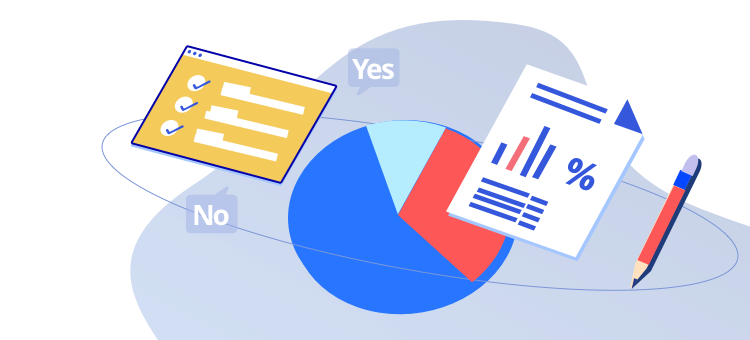Plan on your own
.png)
.png)

The applicant should assign its staff members as the project coordinator and deputy project coordinator who will act as the main contact points between the applicant and HKPC after the application is lodged and throughout the project implementation period if it is approved. In this regard, the applicant should provide valid and direct contact telephone numbers and email addresses of the project coordinator and deputy project coordinator in the application form.
The project coordinator or the deputy should not delegate the overall project leadership responsibility to any third party. At any stage of application, project implementation and monitoring, HKPC may request to meet, interview and/or visit the project coordinator and/or the deputy in person. An application may be rejected if the project coordinator and/or the deputy cannot be directly reached by the telephone numbers provided; is/are unavailable for or refuse to attend the aforementioned meeting, interview or visit in person without reasonable explanation; and/or cannot address enquiries related to the applicant and the application satisfactorily during these sessions
We offer ample assistance to prospective applicants in drawing up their applications. Firstly, we have provided information online through the Scope of Funding (Summary) and Budget Planning Tool provided by the Application Tips webpage. For more tailored assistance, prospective applicants may access the free one-to-one consultation services of SME ReachOut or the BUD Fund Consultation sessions. During these sessions, officers from HKPC provide assistance to applicants in completing application forms, and offer advice on developing enterprises' business plans relevant to the BUD applications.
Applicant enterprises unfamiliar with the target markets can submit Type (i) Project Applications to engage qualified service providers to help develop holistic business plans. Refer to paragraphs 1.4 and 2.2 of Guide to Application for details.
Enterprises wishing to set up a branch company in their target markets through the BUD Fund may refer to 2.1.3, Annex 3, 6 and 7 of Guide to Application for details.
Some businesses (such as regulated industries* or those involving sales of products or licensed brand) may require relevant documentary proof (such specific health or safety certificates, licensing/agency agreements, licences, etc.) from the target market in order to operate legally. If relevant licence/qualification/certification is not obtained when submitting application, the project may be considered infeasible and the application would be rejected. In addition, projects will not be funded without documentary proof of relevant licences/qualification/certifications.
Specific examples:
- A company has already been selling products on e-commerce platforms in the Chinese Mainland, and plans to apply for the BUD Fund for this business. It lacks the relevant licences to demonstrate viability of its online sales, so although the company is already operating the relevant buisness in the target market, they could only be funded after obtaining the licences.
- A company plans to export products to a target market. The products need to pass the testing and certification to ensure compliance with the safety standards of the target market before they can be manufactured and sold locally.
- A company’s business involves licensed brand product/service. It needs to provide relevant licensing/agency agreement(s) in its application to prove the project’s feasibility.
- There are also some scenarios in which applicants do not need relevant licence/qualification/certification as a prerequisite in implementing a project. For example, a company plans to set up a new factory in a target market, and it is confirmed that no documentary proof is required enter the market; the company can simply place their business registration and licence (such as certifications for regulation of food or pharmaceutical products) into their application.
The above examples are non-exhaustive. The latest licence/qualification/certification requirements are subject to the laws of the target market. In case of doubt, please contact the relevant government authorities of the target market.
* Common regulated industries include:food, medical, e-commerce, professional services (such as auditing, financial services, etc.), toys, maternal and infant products, education, publishing, etc.
Large-scale projects may be broken down into smaller ones for subsequent applications.
You may opt for initial payment if applying for “general application”.
